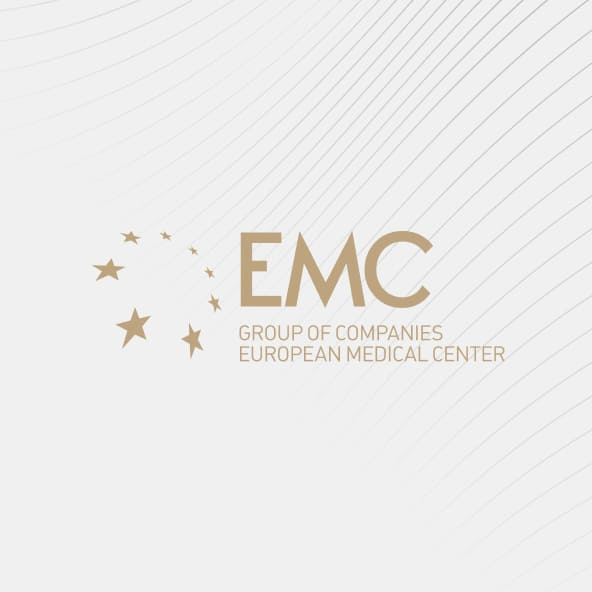IVF by ICSI method
ICSI is an auxiliary method of artificial insemination, part of the IVF protocol. The essence of the procedure is that the embryologist selects a morphologically normal sperm and places it directly into the egg. At the EMC Clinic for Reproductive and Prenatal Medicine, the procedure is performed by qualified embryologists with extensive experience. Make an appointment for a consultation to draw up a diagnostic and treatment plan.
Difference from the classical IVF protocol
ICSI (ICSI – intracytoplasmic sperm injection) is a variation of the classical IVF protocol, but with some differences. As part of the standard IVF procedure, sperm and eggs are mixed in a special environment for fertilization, and then the embryologist only monitors the fertilization process.
In the case of ICSI, the cells are not fused independently, but manually. Embryologists perform an accurate and controlled intervention: under a microscope, one selected sperm is injected directly into the cytoplasm of the egg. This increases the probability of successful fertilization. The procedure helps even in the most difficult cases of male infertility. A minimum number of spermatozoa is required for a successful protocol.
Indications for ICSI
Indications for ICSI are the following situations:
-
insufficient number of spermatozoa or their low activity;
-
abnormalities of sperm morphology;
-
low percentage of fertilization in previous IVF protocols;
-
obtaining a small number of eggs during stimulation.
On average, the ICSI method increases the cost of the procedure by about 15%. At the same time, the chances of successful fertilization may increase, which is why doctors at the EMC Clinic for Reproductive and Prenatal Medicine prefer this particular IVF fertilization option.
Contraindications
It is important to understand that not every couple can undergo IVF with ICSI. There are certain contraindications that may interfere with the implementation of this method of artificial insemination.
Contraindications for in vitro fertilization may include:
-
diseases of the reproductive organs that require surgical intervention;
-
acute inflammatory diseases;
-
serious somatic diseases.
Other limitations may be identified during the examination, so the final decision on the possibility of the procedure is made by a specialist. The EMC has the opportunity to attract different specialists in cases where it is necessary, when the opinion of colleagues from other specialties is needed. This is what helps us to work effectively even with the most difficult cases.
Preparation for IVF with ICSI
Preparation for the procedure is the same as for the standard IVF protocol. At the EMC clinic, the first step is to consult with a reproductive specialist. During this stage, the doctor conducts a detailed study of the patient's medical history, her partner and closest relatives, paying attention to lifestyle, genetic predisposition to certain diseases and other factors. All previous IVF attempts, if any, are also analyzed.
Next, an ultrasound examination is performed for an initial assessment of the ovaries. After that, the doctor prescribes additional examinations to clarify the diagnosis.
After a thorough examination and analysis of all the data, the doctor chooses a method of overcoming infertility, a stimulation protocol, a method of fertilization and embryo transfer, and also draws up a detailed calendar of all stages of the procedure and determines their cost.
Stages of intracytoplasmic sperm injection into the cytoplasm
IVF with ICSI is performed in several stages:
1-3 days of the cycle:injection of drugs to stimulate the ovaries begins. The scheme is selected individually, depending on the woman's medical history (her age, hormonal background, previous IVF attempts). During this period, regular ultrasound examinations are performed.
4-12 days: Drug injections and ovarian health monitoring are ongoing. As soon as the follicles reach the required size, an injection is given, which is necessary for the final maturation of the egg. The date of the puncture is set.
Days 13-14: ovarian puncture is performed under ultrasound control. The procedure is performed under mild sedation. The resulting eggs are sent to the laboratory. A man donates sperm for ICSI. The doctor selects a morphologically normal sperm and inserts it into the same selected egg.
15-16 days:Embryologists monitor the development of embryos. As soon as they reach the blastocyst stage, they are transferred to the uterine cavity. The tactic of embryo transfer 1-3 cycles after their removal is also often used to minimize the burden on the body. The embryos can be frozen and stored in a cryocamber for the required period, for the next IVF attempt or a repeat pregnancy in the future.
Days 20-22: HCG blood levels are analyzed to determine the success of the procedure.
This is a common IVF scheme with ICSI, but each case is different and requires a special approach. The doctor will regularly monitor the patient's condition and adjust the treatment if necessary.
Advantages of the
methodAt the EMC clinic, we prefer IVF reproductive technology with ICSI for several reasons. Firstly, it helps to achieve pregnancy even with serious problems with the male factor of infertility, such as a small number of spermatozoa or their poor quality. Secondly, this method provides a higher probability of successful fertilization, since the sperm is injected directly into the egg. At the same time, the price of the IVF protocol increases slightly.
In our clinic, the number of successful pregnancies is 48%, and the number of implants is 43.5%. In comparison, the average pregnancy rate in Russia is 32-34%.
Such results are achieved through individual work with each patient. We take into account all the features of health in order to make a treatment plan and maximize the chances of a successful pregnancy. The most effective methods of infertility treatment are available to our patients, which have proven effectiveness and are recognized by the world medical community.
ICSI risks and reasons for failure
Despite the high effectiveness of the IVF procedure with ICSI, in some cases it may fail. This method allows you to effectively work with male infertility and achieve results even with a small number of eggs. However, it does not guarantee the proper development of the embryo and its successful implantation.
There are different reasons for failed protocols. First of all, this is the low quality of the eggs, which can lead to unsuccessful fertilization or developmental pathologies of the embryo. A woman's age also plays an important role – after 35 years of age, the probability of successful pregnancy after IVF decreases.
It is important to understand that even with successful fertilization and embryo transfer, there is a possibility of implantation failure or early miscarriage. The reason may be the condition of the embryo, the endometrium, the general health of the woman, and others.
In any case, at the EMC clinic we do everything possible to minimize the risks and increase the likelihood of a successful pregnancy as a result of the protocol.
IVF with ICSI at the EMC clinic
At the EMC Reproductive and Prenatal Medicine Clinic, we are proud to offer first-class infertility services. Here are the advantages of treatment in our center:
-
a team of experienced experts in the field of reproduction;
-
The clinic's specialists are the creators of the iCARM International Conference, a school for reproductologists, and regular participants and speakers at national and international conferences on reproduction, embryology, genetics, and epigenetics.;
-
The head of the Clinic of Reproductive and Prenatal Medicine is Yulia Voznesenskaya, one of the leading reproductive specialists in Russia;
-
The ovarian stimulation and embryo transfer protocols used in EMC comply with standards adopted by professional organizations in the United States and Western Europe.;
-
The bank of donor sperm, oocytes and embryos allows us to offer the highest quality biomaterials to our patients.
The multidisciplinary approach to treatment in our clinic helps us to work effectively with the problem of infertility, even in the most difficult cases. Make an appointment to consult a reproductive specialist and begin treatment.The ICSI method, the price of which increases the total the cost of IVF is no more than 15%, significantly increases a woman's chances of getting pregnant.
Is it possible to do ICSI without in vitro fertilization?
No, ICSI is part of the IVF process and cannot be performed without it.
What is the difference between ICSI and insemination?
Insemination involves the introduction of sperm into a woman's uterus, whereas ICSI involves the introduction of a single sperm cell directly into an egg.
Doctors
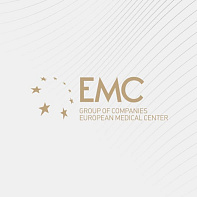
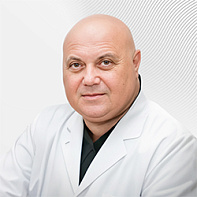

.jpg)

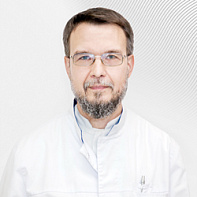
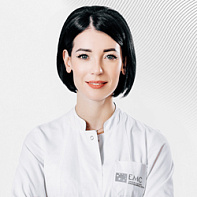
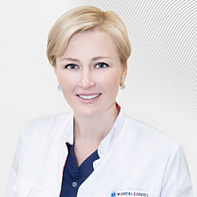
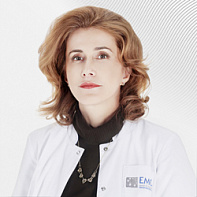
.jpg)
.jpg)
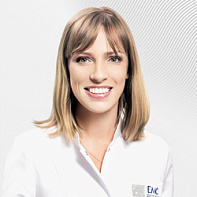
- Head of the Surgical Department of the Meir Medical Center, Kfar Saba
